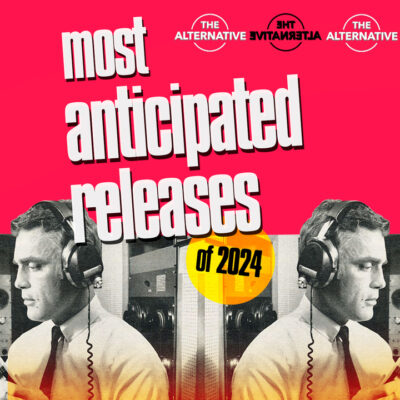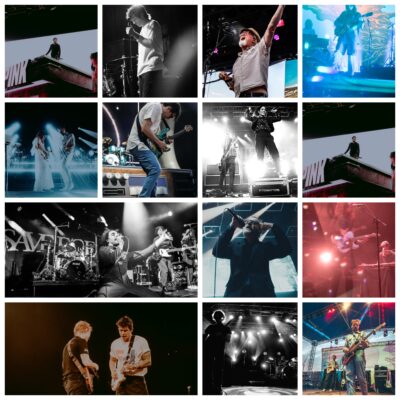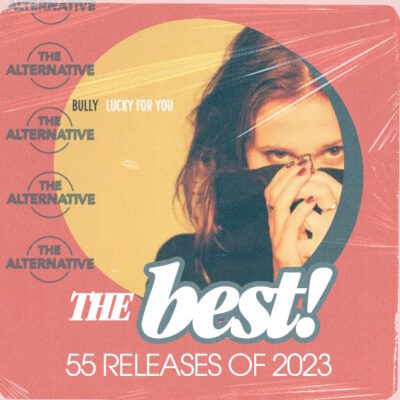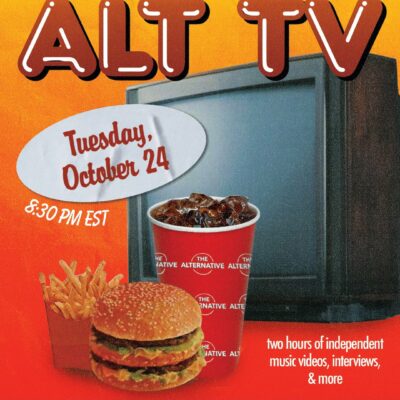Interview: Valleyheart talks narrative and influence on ‘Everyone I’ve Ever Loved’
Posted: by The Editor
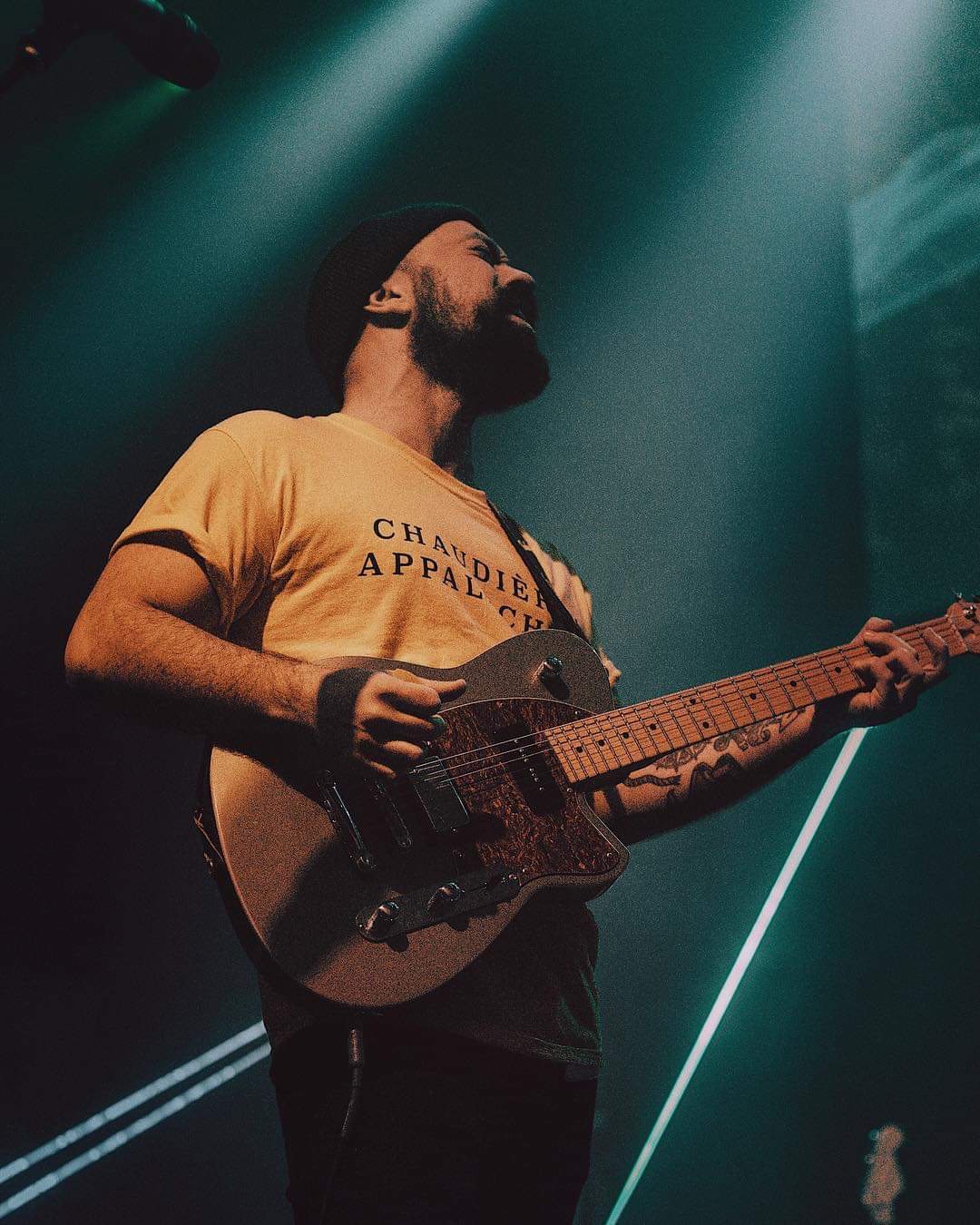
Photo by Drew Wyatt
Valleyheart put out one of 2018’s most underappreciated gems in Everyone I’ve Ever Loved. An eleven-track rumination on love and faith, the record deals in the same sort of moody alt-rock that propelled Manchester Orchestra to indie rock stardom. I recently spoke to Valleyheart vocalist/guitarist Kevin Klein about Dante’s Inferno, the record’s religious imagery, and the future of the band.
Three songs on the record say Everyone I’ve Ever Loved somewhere in the lyrics, “Heaven & Hell,” “Communion,” and “Paradisum.” Did you have that title in mind before you wrote it all, or did you write those songs and get the title from them?
“Heaven & Hell” was one of the first songs I wrote for the album and that line is in the chorus, and as I started writing other songs I started seeing that theme in others. Then I incorporated those lines into other songs as I wrote them.
So why’d you choose that for the title?
The album’s very personal, the lyrics are about my story and my journey in the past couple years with identity, faith, and friendship. I thought it was a weird contrast to have, for a record that’s about me, the title be not about me. To take a step back and realize that you are the sum of your relationships and the people that love you is important. Other people impact your life and the choices you make affect other people and vice versa.
That makes a lot of sense, given the lyrics to “Friends in the Foyer” and then “Kids from Calvary” from the EP. You seem to write a lot about nostalgia and how friendships can fade over time.
Right, and those concepts kind of parallel each other from the Nowadays EP and then this album. There’s the idea of family, friends, loved ones, whatever, watching in on your story and giving their perspective. I thought it would be cheesy if the album title was, like, My Struggle. [Laughs] It would be redundant, I think.
Similar to that, how did the album cover come about? Because it looks like a yearbook photo to me, which fits right in with that.
Yeah, it’s actually my kindergarten class picture. I saw it one day, maybe right after we finished writing the album, before recording it, I was looking through old photos, thinking about the album art. I saw it and was like, “That’s it.”
I had heard that the album was done for a while and delayed before release, could you talk about that?
Well some of the songs I’d written years ago and then brought back. Then we were supposed to release it in the fall, but with mixing and mastering it took a little longer, and I’m sort of a perfectionist with certain things. I did a lot of the mixing and I co-produced the record with our engineer so it was a lot of fine-tuning and just fixing little things. It was a lot of sessions of sitting in and just fixing the little details that would drive me crazy if I didn’t work on them. [Laughs] I just made the decision then that I’d rather wait it out. Like, looking back there’s always things you’d change, but there’s nothing on there that has me like, “Oh, wish we did that differently,” or “That was a big screw-up,” or “That drum sound is weird.” We’re all pretty happy with how it turned out. It took a lot of honing in, but I’m glad we waited.
I guess it probably would’ve turned out pretty different then. The closer would’ve probably been really different.
That was actually the hardest to record, which is funny, because it’s a pretty simple song. We did three versions of that that didn’t sound right. It took way longer than I’m proud of saying and it took a lot of honing in. We did a bunch of different takes and we had to use different mic techniques. At first we were just using the mic I used on the rest of the record, but it was too clean. So, what you hear, that’s not an effect, that’s literally just the mic we used. It’s just this really cheap mic called a copperphone mic and we taped up a wireless system to it. I ended up walking, like, fifty feet outside into this field in the middle of the winter and singing it in the cold because the vibe was just way too clean and bright. Our producer was like, “Why don’t you sing this outside in the cold?” And I was like, “Uh, alright.” And it ended up being perfect, so I’m glad we took the time on that.
Yeah, I heard that story – man, that’s dedication.
Well, it all worked out.
I’m surprised to hear you didn’t write it all at once, since it all fits together like a cohesive narrative. How long had you been writing it for?
Honestly, the cohesiveness of it even surprises me. After it was all said and done, some of the songs I thought would be outliers on the record all fit. I was very, very, very intentional about the sequencing. From the beginning, once all the songs were done, I had the order done. I knew from the beginning where I wanted each song, and I think that helped. I was like, “If these can work together, they need to be ordered right to tell the story I want to tell.” I think that helped it all fit together and, sonically, Kevin [Billingslea] did a great job of making it sound sonically congruent. Like, “Crave” was the first song on the album I wrote and I think it had to be intentionally placed to work with how it works where it is.
Yeah, I was actually going to ask about that. Someone pointed out that it seems like it goes from drinking and escapism, then death and loneliness, then more explicitly religion, with the “Heaven & Hell” as an introductory song and “Paradisum” as a coda.
Yeah, I think the “Heaven & Hell” and “Paradisum” idea was based on Dante’s Inferno, which is this old poetry book. This old poet Dante from Italy, he went through the tiers of hell, and the first chapter is called “Limbo,” and there’s all these well-intentioned people there, in between heaven and hell, and that was the kind of landscape I wanted to create with “Heaven & Hell.” Then “Paradisum,” the last chapter of that, talks about the exit from the Church. They both have that gothic, classic religious vibe I wanted for the first and last track. And then it just worked out, like you said, the first few tracks are about escapism, my very personal struggle, the middle ones are existential, and then religious. They kind of come in triplets.
There’s one section in “Communion” that I thought was really interesting, the “catcall to the cosmos” and “talking kind of macho” verse. That seemed like a mix of religious imagery and then more classically masculine imagery and I was wondering what that meant in the context of the song. It felt different from the other lyrics on the song – even the album, really.
To me, that’s one of the more lyrically fluid songs, where it’s a story, but it’s more rooted in poetry. It’s vaguely about my upbringing in the Church and the posture and attitude on certain issues they would take, which can be very male-driven sometimes, you know. So that “catcall to the cosmos” is sort of that concept – not specifically or explicitly, but that’s where my mind was going with those lines.
I wanted to talk also about the bridge of “Dissolve,” the “lavender guilt” section. As a listener, that seemed a lot more humanistic as opposed to religious if that makes sense.
Totally. I think that line confused a lot of people, like, “That doesn’t line up with where you go later in the album.”
I don’t want to say it seems more optimistic, but it seems more, maybe, hopeful.
Maybe. I think, as a whole, that may be my favorite song on the record, lyrically. It’s that notion that, even if there’s nothing in the end, all this fades and it was all in vain, at least we have each other and the people we love, and that is as important as some eternity, if we ever reach it. A lot of the record is thinking about eternity, life after death, where we all go, where it all leads, and I think that was a reminder to me, like, “Dude, you’ve got to slow down and live in this moment. You can’t just be existential and think about what’s going to happen millions of years from now.” [Laughs] Like, “The people that love you and the moments you make now might even be realer than these things you’re thinking of.”
Are there any other songs you’re proudest of on the record you want to highlight?
Yeah, the song after that, holistically, is my favorite, “Drowned in Living Waters.” That one was my least favorite, coming in to record. That’s always it, it’s always the one you don’t like that becomes your favorite. [Laughs] That song has a very different vibe at the beginning than the second half – it’s very mellow, very atmospheric, although I hate those words. [Laughs] It’s on the softer side, you know, and then it picks up. I was really struggling to make it sound like a congruent song. Once we recorded it, it all fell into place and it’s the one that lyrically and musically I’m proudest of.
What can fans expect from Valleyheart in the near future? Anything to look forward to?
Yeah, we’re playing a couple festivals in the summer, nothing we’ve announced yet, except in May we’re playing Flood Fest in Pennsylvania. We’re going on tour in May, but I can’t say with who yet because it’s not technically announced yet. We’ll be hitting the road, and hopefully more dates this summer. Always writing too, I’m starting to work on the next batch of songs. So just touring and writing, basically.
If there’s anything else you want to say that I haven’t asked about, go for it.
I think you covered it. Thank you, man.
Thank you.
Follow Valleyheart on social media:
Facebook // Twitter // Bandcamp
—
Zac Djamoos | @greatwhitebison
The Alternative is ad-free and 100% supported by our readers. If you’d like to help us produce more content and promote more great new music, please consider donating to our Patreon page, which also allows you to receive sweet perks like free albums and The Alternative merch.






